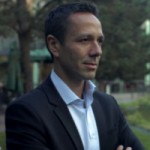
By Gianpierro Petriglieri
To distressed people in troubled times, the least rational leaders make the most sense. This hundred-year-old theory harks back to the work of Sigmund Freud — and having to resort to it to explain a leader’s rise is never good news.
After all, a decade after he cast light on the social forces that would sink Europe into the abyss of totalitarianism, an ailing Freud was forced to flee Vienna for London, where he could, as he put it, “die in freedom.” It was 1938. Soon after, hundreds of thousands began to die for it.
Although most people associate the Viennese psychologist with his controversial conjectures about the unconscious mind, sexuality, and neuroses, fewer know (or acknowledge) that he also put forward one of the most enduring and validated theories of leadership. Continue reading




 by Michael Schrage
by Michael Schrage By Lydia Dishman
By Lydia Dishman